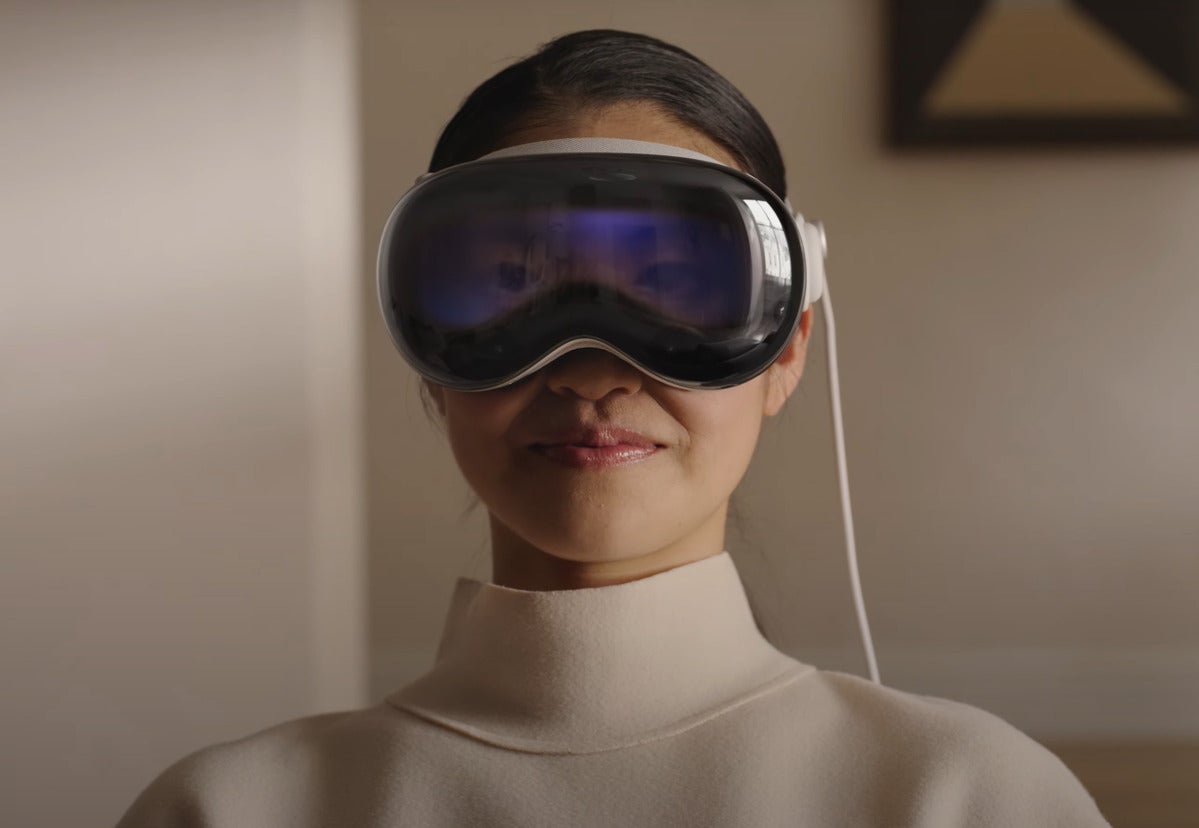CES is coming, and if the past is any guide, Apple won't be part of the festivities. And yet, as is often the case, its presence will be felt across the exhibition floor.
Why? Because while generative AI (gen AI) might this year appear in everything (for good or ill), the other big story will be augmented reality (AR) — and Apple’s much-ballyhooed Vision Pro hasn’t even hit the market yet.
You can tell this is so by the rash of Vision Pro rumors, speculation, and claimed design and usage leaks emerging like clockwork in the run up to CES.
Call me cynical, but this kind of speculation rarely slips out without some reason, and with some talk that Vision Pro could ship as soon as this month, well, let’s just say the device will be part of the of conversation across the CES floor.
Coming 'round the mountain
The atmosphere around the AR/VR device stalls at CES will therefore feature an odd combination of hope and anxiety. Apple is coming. That’s why the industry has been relatively silent since Apple’s Vision Pro unveiling last year.
Apple stole the oxygen.
Put it this way: all the other VR device makers gathered at the show will figuratively be listening out for the intensifying hum of Vision Pro traffic bearing down on them from the Californian mountains, and while some may optimistically say the debut will “grow the industry” (™), deep down they know it means they must wait and see what the product does and how it is received in the real world before they sign off on their own future development plans.
You see, others know they must ask themselves tough questions before spending valuable R&D dollars on future product design. Will their hardware compete? Will they be able to deliver the depth of user experience many expect from Cupertino? Will the Apple product, with its eye-watering price tag, actually flop?
The latter is unlikely, but given that the limited initial audience will consist of wealthy early adopters and companies that want cutting-edge tech, what will success look like to Apple, and how might it set expectation for the category?
What happens when your glasses get smarter?
The other conversational strand at the show will focus on generative AI. We know this technology is being woven into a range of products. Smart Eye, for example, will introduce its work to build an in-car automotive assistant capable of sensing and responding to human emotion. (Eyeris, OMNIVISION, and Leopard are also working on a machine vision led approach to in-vehicle experiences.)
This work hints at how genAI will be used with machine vision intelligence to augment human/machine interaction by making machines that intuitively respond to human emotion in real time.
Given Apple’s continued work in vision AI and its recently disclosed research pertaining to it, don’t be too surprised if emotion sensing and real-time response is part of the company’s future wearable UI roadmap. It makes no sense for it not to be, and those Neural Engines in Apple Silicon need to justify their existence somewhere down the line.
No show, big noise at CES
All the same, in the week before CES, Apple once again looms large, despite its traditional non-attendance.
People will be looking over their shoulder, wondering if this will be the year Apple introduces its take on generative AI, and to what extent the user experience it brings with Vision Pro will define what people expect from these devices.
These conversations should help distract attention from the company’s small decline in iPhone sales and the impact of war in the Middle East on its global product distribution and supply lines.
Please follow me on Mastodon, or join me in the AppleHolic’s bar & grill and Apple Discussions groups on MeWe.






